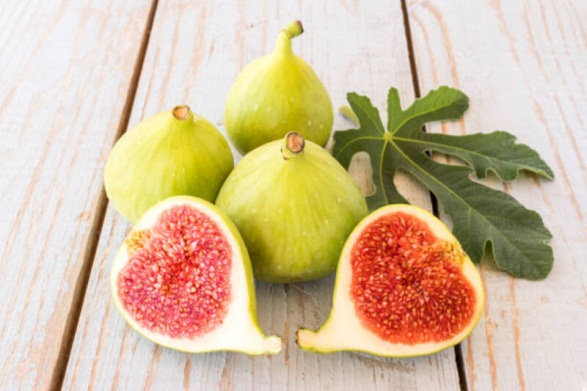Figs, often overlooked in favor of more mainstream fruits, are a nutritional treasure trove. This ancient fruit, revered by civilizations across the centuries, is brimming with benefits that can invigorate your diet and bolster your health. Packed with fiber, essential vitamins, and a unique blend of antioxidants, figs serve as a sweet, nutritional powerhouse. Whether fresh or dried, they provide a delightful texture and a versatile flavor that can complement various dishes. Through this article, we will delve into the nine fantastic benefits of incorporating figs in your diet, demonstrating how this modest fruit can contribute to a healthier lifestyle. Get ready to embrace the fig and allow it to enrich your dietary regime.
Nutritional Profile of Figs

Figs showcase an impressive nutritional profile, teeming with a variety of essential nutrients. Foremost, they are an excellent source of dietary fiber. A serving of about three small figs provides around 5 grams of fiber, accounting for approximately 20% of the daily recommended intake. This fiber promotes digestive health, aids in maintaining a healthy weight, and can even help control blood sugar levels.
Additionally, figs are rich in essential vitamins, including vitamin A, B1, B2, and K. Vitamin A is crucial for eye health, while B-vitamins contribute to energy metabolism and the proper functioning of our nervous system. Vitamin K plays a vital role in blood clotting and bone health.
Minerals are another component where figs shine, delivering a potent mix of calcium, potassium, magnesium, and copper. Calcium is instrumental for bone strength, while potassium helps regulate heart function and blood pressure. Magnesium contributes to over 300 enzymatic reactions in the body, and copper aids in the formation of red blood cells. With such an array of vital nutrients, figs indeed stand as a remarkable addition to any diet.
9 Fantastic Health Benefits of Figs
Now, let us delve into the fantastic health benefits of incorporating figs in your diet.
Boosted Digestive Health:
Figs contain high amounts of fiber, which promotes regularity and can prevent constipation. This fruit also contains prebiotics, which act as food for the beneficial bacteria in our gut. These bacteria help break down food and aid in nutrient absorption, leading to improved digestive health.
Improved Cardiovascular Health:
The significant amount of potassium found in figs can contribute to a healthier heart. Potassium helps regulate blood pressure and can reduce the risk of stroke and heart disease. Furthermore, the high fiber content in figs can also help lower cholesterol levels.
Strengthened Bones:
Figs are an excellent source of bone-strengthening minerals like calcium, magnesium, and potassium. These minerals play vital roles in maintaining strong bones and preventing conditions such as osteoporosis.
Enhanced Immune System:
Figs are loaded with immune-boosting antioxidants, including polyphenols and flavonoids. These compounds help fight off free radicals that can damage our cells, leading to a stronger immune system.
Improved Skin Health:
The abundance of vitamin C in figs helps promote collagen production, resulting in healthier and more youthful-looking skin. Additionally, the fruit's antioxidant content can help protect against sun damage and prevent premature aging.
Regulated Blood Sugar:
Figs have a low glycemic index, meaning they are digested slowly and do not cause spikes in blood sugar levels. This makes them an excellent addition to a diabetic or pre-diabetic diet.
Reduced Inflammation:
The antioxidants found in figs have anti-inflammatory properties that can help reduce inflammation in the body. Chronic inflammation has been linked to various health conditions, making figs a valuable addition to an anti-inflammatory diet.
Promoted Weight Loss:
The high fiber content of figs can help promote weight loss by keeping you feeling full for longer periods. Additionally, the fruit is low in calories and contains no fat or cholesterol, making it a healthy snack alternative.
Increased Energy:
Figs are an excellent source of natural energy, thanks to their high fiber and carbohydrate content. They also contain vital vitamins and minerals that contribute to energy production, making them a perfect snack for an energy boost.
Incorporating Figs into Your Diet

There are numerous ways to incorporate figs into your diet, from eating them fresh or dried as a snack to adding them to salads, desserts, and even savory dishes. Here are some creative ideas on how you can enjoy this delicious fruit:
- Slice fresh figs and add them to your yogurt or oatmeal for a nutritious breakfast.
- Use dried figs as a topping for your morning toast or pancakes.
- Stuff figs with goat cheese and wrap them in prosciutto for an elegant appetizer.
- Add chopped figs to salads, giving them a touch of sweetness and texture.
- Poach figs in red wine and serve them with ice cream for a decadent dessert.
- Use figs in savory dishes such as tagines, stews, or chutneys to add depth and flavor.
- Make a fig jam to add to your toast, sandwiches, or as a glaze for meats.
- Incorporate figs into baked goods such as cakes, muffins, and cookies for a healthier twist on traditional recipes.
Conclusion
Incorporating figs into your diet can provide an array of fantastic health benefits. From improved digestive health to strengthened bones and enhanced immune function, this delicious fruit packs a powerful nutritional punch. With its versatility in various dishes and snacks, there is no reason not to include figs in your daily meals. So, next time you're looking for a healthy and tasty addition to your diet, reach for some figs and let their goodness enrich your life. So go ahead and give this wonder fruit a try, and reap the many benefits it has to offer!




